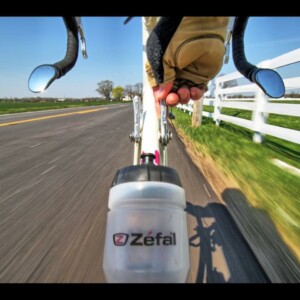Less than 24-hours after the ASO declared they would block Chris Froome from starting the Tour de France, the UCI has cleared the 4-time Tour winner of any wrongdoing over his long-running salbutamol case.
Around 10am Zurich time the Union Cycliste Internationale released a detailed statement that included two key dates – that Froome filed an explanation for the abnormal salbutamol result on June 4, and on June 28 WADA informed the UCI it accepted Froome’s results did not constitute an Adverse Analytical Finding.
On Sunday the ASO said they would block Froome from starting the 105th edition of the race, their decision being based upon article 28 of their rules which states ‘the ASO reserves the right to refuse or exclude a team or any of its members whose presence could damage the reputation of the Tour de France.’
Then today, Monday July 2, the UCI completely exonerated Chris Froome.
We are keen to hear your thoughts on this – have your say in the comments section below.
The statement in full –
‘The Union Cycliste Internationale (UCI) confirms that the anti-doping proceedings involving Mr Christopher Froome have now been closed.
On 20 September 2017, Mr Froome was notified that a sample collected during the Vuelta a España on 7 September 2017 was reported to contain a concentration of salbutamol in excess of 1000ng/ml.
The World Anti-Doping Agency (WADA) Prohibited List provides that inhaled salbutamol is permitted subject to a maximum dose of 1600 micrograms over 24 hours, not to exceed 800 micrograms every 12 hours (the permitted use), and that a concentration in excess of 1000 ng/ml is an abnormal finding which is presumed not to be the result of a permitted use. The WADA Prohibited List further provides that the athlete can establish that his/her abnormal result was the consequence of a permitted use, in which case it will not be considered as an Adverse Analytical Finding (AAF).
The UCI instigated disciplinary proceedings in accordance with the UCI Anti-Doping Rules (ADR), during which Mr Froome exercised his right to prove that his abnormal result was the consequence of a permitted use. The proceedings started with an evidentiary phase, with the UCI and Mr Froome agreeing that the UCI Anti-Doping Tribunal would decide whether certain information could be provided to Mr Froome in preparing his defence. The UCI already sought WADA’s advice at that stage, during which a significant number of expert and scientific reports were submitted on behalf of Mr Froome.
After the evidentiary phase, Mr Froome requested additional information from WADA about the salbutamol regime. Following receipt of information from WADA, Mr Froome then filed his explanation for the abnormal result on 4 June 2018, together with significant additional expert evidence.
The UCI has considered all the relevant evidence in detail (in consultation with its own experts and experts from WADA). On 28 June 2018, WADA informed the UCI that it would accept, based on the specific facts of the case, that Mr Froome’s sample results do not constitute an AAF. In light of WADA’s unparalleled access to information and authorship of the salbutamol regime, the UCI has decided, based on WADA’s position, to close the proceedings against Mr Froome.
Whilst the UCI would have obviously preferred the proceedings to have been finalised earlier in the season, it had to ensure that Mr Froome had a fair process, as it would have done with any other rider, and that the correct decision was issued. Having received WADA’s position on 28 June 2018, the UCI prepared and issued its formal reasoned decision as quickly as possible in the circumstances.
The UCI understands that there will be significant discussion of this decision, but wishes to reassure all those involved in or interested in cycling that its decision is based on expert opinions, WADA’s advice, and a full assessment of the facts of the case. The UCI hopes that the cycling world can now turn its focus to, and enjoy, the upcoming races on the cycling calendar.’


